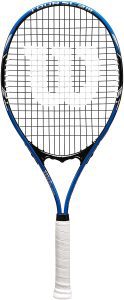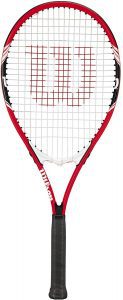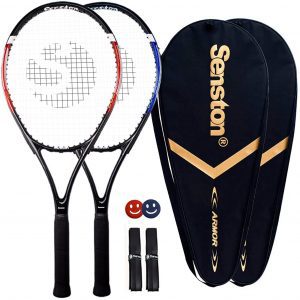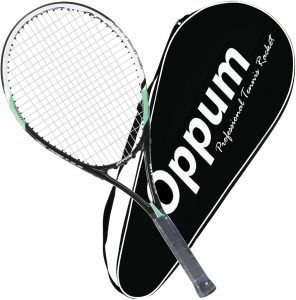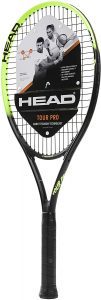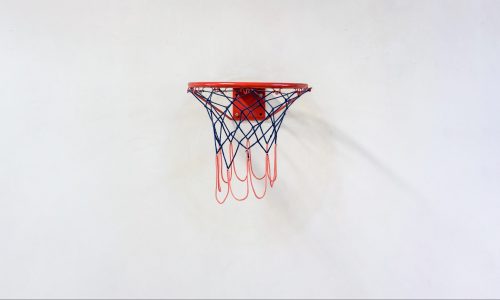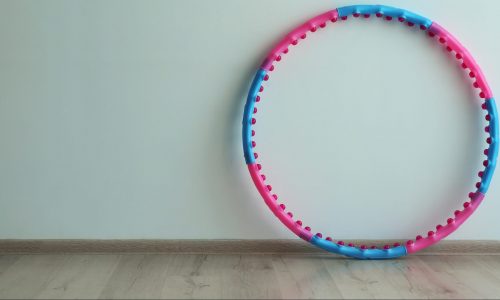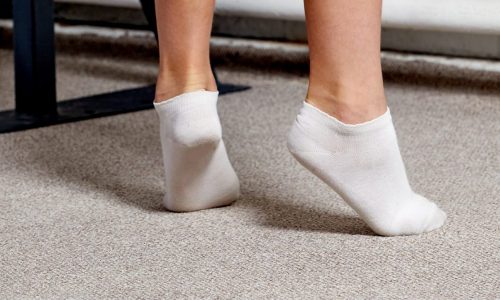The Best Women’s Tennis Racquets

Our Review Process
Don't Waste Your Money is focused on helping you make the best purchasing decision. Our team of experts spends hundreds of hours analyzing, testing, and researching products so you don't have to. Learn more.
Our Picks For The Top Women's Tennis Racquets
- 1. Wilson Tour Slam Lite Women’s Tennis Racquets
- 2. Wilson Federer-Version 2 Women’s Tennis Racquets
- 3. Senston Double Women’s Tennis Racquets With Covers
- 4. OPPUM Lightweight Women’s Tennis Racquets With Bag
- 5. Fostoy High-Tension Women’s Tennis Racquets With Carry Bag, Set of 2
- 6. HEAD Tour Pro Oversized Women’s Tennis Racquets
The AirLite alloy frame on this women's tennis racquet is both lightweight and durable. Athletes will appreciate the extra-large head and extended reach, as these features provide better coverage on the court. Basalt fibers are woven into the frame to create a softer feel.
Extended ReachWith this women's tennis racquet, you'll get a larger sweet spot for powerful performance.
This women's tennis racquet comes in an attractive red color and it's designed to be lightweight and easy to maneuver for better control. The surface area of the racquet is also larger, making it a great choice for beginners.
Increased PowerThanks to this women's tennis racquet's stop-shock sleeves, vibrations are kept to a minimum.
High-intensity is what you'll get with these women's tennis racquets. That's because these racquets were constructed using one-piece molded technology, which also adds durability. The set includes two racquets in your choice of white and white, black and black or red and blue.
Great for BeginnersIn addition to two women's tennis racquets, this set also comes with overgrips, vibration dampers and carrying cases.
The triangular structure and wooden handle on this women's tennis racquet provides double shock absorption. The racquet is also throw-proof, so you can count on it lasting for many years. A carrying bag, tennis grip and shock absorber are included in the set.
Multiple Color CombinationsYou'll find this women's tennis racquet available in nine different colors, including red, sky blue, black and green.
Buying Guide
By the end of 2020, Americans had reportedly spent a whopping $89 million on tennis racquets. The sport has remained popular and it’s a great way to get some exercise, even if you aren’t into competing on a professional level. When shopping for a new racquet, you’ll want to keep the following features in mind.
Check the weight of the tennis racquet you’re considering. Many women favor lightweight models, as they are easier to maneuver and control. A racquet that weighs between 260 and 280 grams before being strung is an excellent choice.
Review the length of the racquet next. You’ll find 27 inches is a good place to start, as this is the most commonly used size. If you tend to have a smaller frame, you’ll want to look for a racquet that’s a bit shorter. Players who can handle a longer racquet will find they are able to achieve better court coverage.
Look at the size of the racquet’s head after choosing a length. Mid-length racquets measure between 96 and 100 inches, while larger racquets have heads that measures between 101 and 109 inches. Larger head sizes are best for beginners, as they have a bigger sweet spot for increased power.
Examine the overall design of the racquet. Some models are made using one-piece molded technology for added durability. This technology allows for good hit acceleration and better stroke control. Others feature a triangular-shaped frame that is firm, stable and better able to absorb shocks.
Check the racquet’s handle and grip. You want the wrapping to be strong, yet comfortable. There are racquets with stop-shock sleeves that reduce vibration during play, which is much easier on the wrists. When it comes to grip size, women generally do well with a size of 4 and 1/4 inches (which is sometimes listed as 4 and 2/8 inches).
Decide whether you’re interested in going with an open- or closed-string pattern. Open patterns allow for stronger hits and greater spins, while closed patterns are designed to promote better control and accuracy. Your style of play will most likely determine which type is best for your game.
When trying to decide between two or three different models, look for any extras that may come with the racquet that would make it a better buy. For example, some women’s tennis racquets come with a carrying bag to protect them when not in use. Others include overgrips, vibration dampers and player tape in their sets.
What to Look For
- The first step in maintaining your women’s tennis racquet is purchasing a cover bag or carrying case for it (if one wasn’t provided with your racquet). You could go with a simple case that holds just one racquet or a larger bag that not only fits more than one racquet, but also has room for a change of clothing, a few tennis balls and a snack. There are bags that come in backpack form, as well as cases that feature built-in wheels for pushing or pulling. Tournament bags are ideal for those who plan on competing in the sport, but they aren’t necessary for beginners or recreational players.
- Never store your tennis racquet anywhere it will experience extreme heat or cold, like an attic or outdoor shed.
- Always keep the string tension on your women’s tennis racquet to the specifications found in your user manual. The manual should also point out how often the racquet needs to be restrung. Of course, you’ll also need to restring the racquet if it becomes damaged or one of the strings comes loose. If you don’t feel comfortable completing this task on your own, have the racquet professionally restrung.
- You can bring a tennis racquet with you on an airplane as a carry-on, which is probably a good idea if you want to make sure the racquet isn’t damaged during the trip.
- Maintaining your tennis racquet also involves replacing the grip regularly. The grip is what allows you to maintain control over the racquet and when it’s wearing down, your hands will begin to slip and you may even develop blisters. Depending on how often you play, you may only need to do this twice a year.
- While you won’t want to clean your tennis racquet too often, it’s still good practice to wash it from time to time. Use either baking soda and water or a citrus-based cleaning agent on the racquet. Harsh cleaning products should never be used, as they could damage the racquet.
- Wipe down your racquet using a clean lint-free cloth, as sweat and moisture may be present on the racquet after use.
- Before you start your tennis match, take a few minutes to stretch your legs, arms and neck. This reduces the chance of pulling a muscle during play.
- Choose clothing that is lightweight and allows for a full range of motion. You may also want to check that the clothing is moisture-wicking for those hot summer days.
More to Explore
According to Elmira College, although England was believed to have invented tennis in 1793, the game of tennis actually existed during the medieval era. This first form of tennis wasn’t conducted on a court, but was rather played against walls and roofs.
Here are a few more interesting facts about the sport:
- The Guinness World Record for the “Most World Championships, Real/Royal Tennis — Women” belongs to Penny Lumley. She accomplished this feat by winning a total of six World Championships.
- Tennis is one of the few sports where both male and female players are payed equally.
- The Women’s Tennis Association was founded by Billie King in 1973. She also served as the organization’s first president.
- The first American woman to win the singles competition at Wimbledon was Marry Sutton Bundy. She won in 1904 and again in 1907.
- Did you know that the first tennis balls were white? It wasn’t until Wimbledon in 1986 that yellow tennis balls were used.

